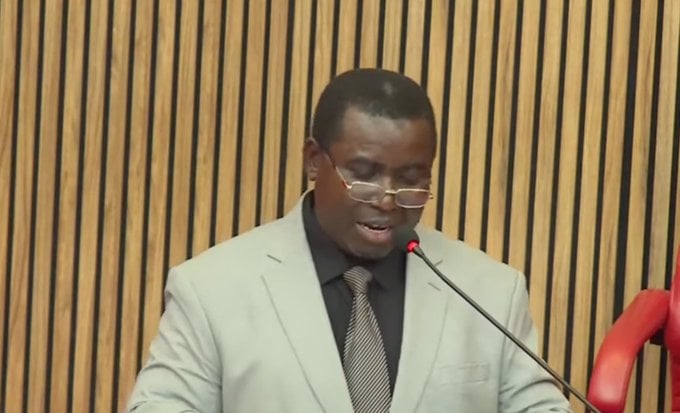Politics
Real Reason BVAS Failed in 2023 Presidential Election — New INEC Chairman Finally Speaks Out
INEC Chairman Prof. Joash Amupitan says the commission has identified the major obstacle that hindered BVAS for real-time result uploads during the 2023 presidential election.

- INEC Chairman Prof. Joash Amupitan says the commission has identified the major obstacle that hindered BVAS for real-time result uploads during the 2023 presidential election, insisting that BVAS itself remains a “foolproof mechanism” against identity fraud.
The Chairman of the Independent National Electoral Commission (INEC), Prof. Joash Amupitan, SAN, says that despite the major gains achieved through the deployment of the Bimodal Voter Accreditation System (BVAS), poor telecommunications connectivity remains the commission’s biggest obstacle to real-time result uploads.
Speaking at the 2025 Digital Nigeria International Conference and Exhibitions in Abuja, organised by the National Information Technology Development Agency (NITDA), the INEC Chairman — represented by National Commissioner May Agbamuche-Mbu — acknowledged that uneven network coverage across the country continues to hinder seamless transmission of polling-unit results to the INEC Result Viewing (IReV) portal.
According to a statement signed by the Chief Press Secretary to the INEC Chairman, Dayo Oketola, Amupitan explained that while voter impersonation and multiple voting have been “effectively curtailed,” connectivity challenges persist in several regions.
He highlighted the scale of the problem:
“With 176,846 polling units tucked into swamps, perched on mountains, and hidden in far-flung communities, achieving real-time upload of polling unit results to the INEC Result Viewing Portal remains one of the toughest battles for transparency on Election Day.”
“A tool like the BVAS is only as good as the network it runs on,” he added, noting that INEC is intensifying engagements with the Nigerian Communications Commission and network providers, while exploring alternative technologies to address persistent connectivity gaps.

Despite these issues, Amupitan declared that voter impersonation and identity theft are now history.
He described BVAS as a turning point in Nigeria’s elections, calling it a “foolproof mechanism” for voter verification.
DON’T MISS: BREAKING: Tinubu’s Government Opens talks with US after Trump’s Warning of Possible Military Action
“The BVAS device has become our frontline defence against identity fraud, ensuring that only the rightful, eligible voter can be accredited at the polling unit. With the biometric safeguards now in place, voter impersonation has been effectively eliminated from our electoral system,” he said.
Citing data from the recent Anambra governorship election, he noted that the 6,879 BVAS devices deployed delivered a “highly commendable performance,” with over 99% of polling-unit results uploaded to the IReV portal on election day.
“These outcomes confirm that the deployment of BVAS and IReV is no longer experimental but an entrenched part of Nigeria’s electoral architecture. The figure announced at the polling units is the same figure visible to the public. Technology has safeguarded the vote,” he said.
Amupitan emphasised that earlier technologies lacked legal backing, leaving the Commission exposed during election petitions — a challenge resolved with the Electoral Act 2022.
He described Section 47(2) as a game-changing provision that transformed digital tools from administrative devices into “statutorily protected pillars” of Nigerian elections.

“This legislative foundation ensures that our digital tools have both operational and legal legitimacy. It has strengthened public trust and enabled the Commission to innovate with confidence,” he said.
Sending a message to politicians, the INEC chairman ruled out any return to manual election processes.
“The gains we have recorded are too significant to reverse,” he said, insisting that BVAS and IReV will not only be sustained but strengthened.
Amupitan further reiterated that “ghost voting” had been eliminated and that INEC’s mission remains unchanged: ensuring accurate voter verification, proper vote counting, and transparent result publication.






















